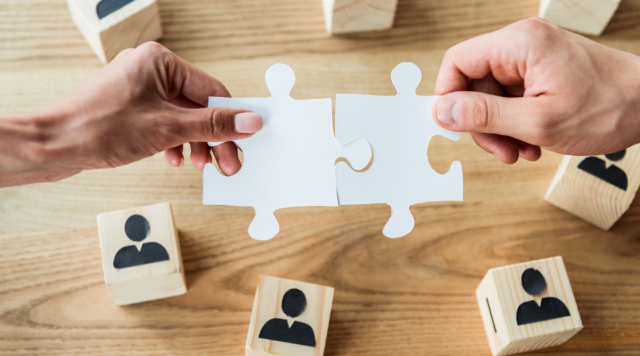


Picture this: a woman at the age of 38 becomes the vice president of a global company, but male board members routinely criticize her age, calling her pet names like “kiddo” or “young lady.” Would being older make a difference for her? Probably not. She’s at the age where she should be advancing her career and striving for higher level jobs as her generation of workers are said to have “fresh, new ideas.” But unfortunately, she will continue to be berated and judged for her age until she hits her 50s or 60s, when she’ll then be judged for being too old in c-suite. Welcome to ageism in the workplace: the act of unfairly assessing, pigeonholing and marginalizing employees based on their age.
In the intricate tapestry of workplace biases, one strand often overlooked is ageism, particularly its detrimental impact on women’s professional advancement. Historically, ageism has been a significant hurdle, disproportionately affecting women in their pursuit of career progression. However, as societal norms evolve, so does the narrative surrounding age and competence, ushering in a new era of empowerment for women based on their skills and abilities rather than arbitrary age-related stereotypes.
In this blog we’re discussing the challenges and biases women have faced due to ageist perceptions, which have impeded their opportunities for advancement and recognition. We’ll also delve into how organizations can contribute to a transformative shift in the workplace to rewrite this narrative and focus on competence rather than age, thereby empowering young women to thrive in their careers.
Ageism, defined as prejudice or discrimination against individuals based on their age, has long plagued workplaces worldwide. For women, this discrimination is often overlooked as a barrier to professional growth, but it frequently manifests in various forms, including limited opportunities for career advancement, unequal pay and systemic biases favoring younger counterparts. The general belief that youth equates to competence has marginalized experienced women, undermining their contributions and potential within professional settings. Women of Influence+ released ground-breaking findings from its survey, “Exploring the Impact of Ageism on Women in the Workplace,” indicating that nearly 80% of women have encountered age-related discrimination in their careers. One respondent shared, “Ageism is so intertwined with sexism, it’s hard to separate the two.”
Historically, women faced a double-edged sword concerning ageism. As they navigated their careers, they encountered societal expectations dictating their roles and value based on age. Younger women were often underestimated, while older women faced the harsh reality of being sidelined, deemed obsolete or irrelevant in rapidly evolving industries.
Numerous studies have established a clear connection between age-based discrimination and the formation of negative perceptions and biases. Younger individuals often fall victim to stereotypes portraying them as lazy, unreliable, disorganized, selfish and lacking motivation solely because of their age. Consequently, they are frequently denied access to greater responsibilities and promotions, and tend to receive lower compensation and fewer benefits compared to older colleagues with similar experience.
Conversely, research has also suggested prevalent stereotyping of older individuals in the workplace. While some stereotypes may portray them positively as dependable, loyal and possessing strong work ethics, negative stereotypes are more prevalent. These include assumptions of lower adaptability, diminished physical capabilities, limited technological proficiency, reduced trainability and resistance to change. Despite lacking substantial merit, these negative stereotypes persist – leading to significant discrimination. Older workers are often overlooked for interviews, employment opportunities and promotions.
This entrenched ageist mindset has not only perpetuated gender disparities but has also mitigated innovation and diversity within organizations. Women, regardless of age, found themselves grappling with systemic biases that impeded their professional growth and limited their opportunities for advancement. Bonnie Marcus, author of “Not Done Yet! How Women Over 50 Regain Their Confidence and Claim Workplace Power,” says “if you are a woman over 30 in tech, you’re considered old. Once you’re a mother and in a tech company, you’re already an outsider and considered in a different category and class … marginalized.”
But, as societal attitudes evolve and organizations prioritize inclusivity, a paradigm shift is underway, challenging ageist stereotypes and championing competence as the ultimate benchmark for success.
Addressing and preventing ageism in the workplace requires a multi-faceted approach that involves both organizational policies and individual awareness. To combat gender and age discrimination against women, workplaces must prioritize diversity and inclusion initiatives that foster an environment of respect and equal opportunity. This includes implementing fair hiring and promotion practices, providing ongoing training on unconscious bias and promoting mentorship programs to support career advancement for women at all stages of their professional journey.
Organizations should be addressing age-based harassment with accessible and clear policies in place. With Sodales, organizations can establish a centralized resource for accessing these policies and procedures, streamlining the process for age or gender based harassment complaints. Employers can submit and track these complaints on behalf of themselves or someone else, ensuring transparency while offering a clear flow into the discipline process should disciplinary action be required. By centralizing this data and providing real-time insights, organizations can proactively manage their complaints to reduce the risk of legal issues and reputational damage.
Additionally, creating flexible work arrangements and offering resources such as professional development opportunities and access to networking groups can help women overcome age-related stereotypes and barriers. Organizations can also create opportunities for intergenerational collaboration and teamwork to foster understanding and appreciation among employees of different age groups. By actively challenging ageist attitudes and promoting a culture of inclusivity, workplaces can empower women to thrive and contribute their full potential without the constraints of age-based discrimination. To learn more about this, check out one of our most recent blogs discussing how leaders can create inclusive workplaces for women here.
“The findings of our survey are a call to action — it’s time for systemic change,” said Dr. Billan, CEO of Women of Influence+. In recent years, there has been a paradigm shift challenging ageist attitudes and advocating for meritocracy in the workplace. Increasingly, emphasis is placed on skills, knowledge and accomplishments rather than age or gender. This shift not only dismantles age-related barriers but also opens doors for women of all ages to thrive professionally based on their competence and merit.
In this transformative journey towards equality, companies like Sodales have emerged as champions of inclusion and diversity, particularly in empowering women in the workplace. Sodales has embraced the ethos of equality, leveraging its platform and brand to promote a culture of inclusivity and empowerment. Sodales recognizes the importance of representation and visibility in challenging ageist stereotypes. By showcasing diverse role models and leaders across age groups, Sodales celebrates the achievements of women at every stage of their careers, inspiring future generations to pursue their ambitions. Through thought leadership initiatives, advocacy campaigns and community engagement efforts, Sodales amplifies the voices of women, empowering them to shatter glass ceilings and redefine societal norms.
Sodales understands that diversity goes beyond mere representation; it is about creating a culture where every individual feels valued, respected and empowered to contribute their best.
Ageism has long been a barrier to women’s professional advancement, perpetuating stereotypes and limiting opportunities based on arbitrary notions of age. However, as society progresses, so does the narrative surrounding age and competence, ushering in a new era of empowerment for women based on meritocracy and inclusivity. Companies like Sodales play a pivotal role in driving this change, leveraging their platform and brand to promote equality and empower women in the workplace. As we continue to challenge ageist attitudes and advocate for diversity and inclusion, we pave the way for a future where women of all ages can thrive and succeed on their own terms.
To learn how Sodales for Enterprise Health, Safety and Employee Relations can help take your HR processes to the next level, book your free industry-specific demo here.